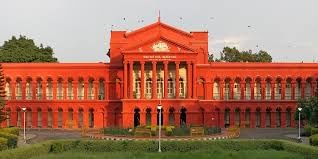High Court | KPSC KAS Preparation: All subjects - KPSC KAS (Karnataka) PDF Download
| Table of contents |

|
| Introduction |

|
| Historical Background |

|
| The Constitution of the High Courts |

|
| Appointment of High Court Judges |

|
| High Court Jurisdiction |

|
Introduction
- High Courts are the highest judicial bodies at the state level in India, functioning after the Supreme Court, and play a crucial role in the country's legal system.
- There are currently 25 High Courts in India, some states sharing a common High Court.
Historical Background

- The establishment of High Courts in India traces back to the recommendations of the Law Commission in 1858 and the enactment of the Indian High Courts Act in 1861.
- Prior to this act, there were three supreme courts in the presidencies of Calcutta, Madras, and Bombay, which were replaced by High Courts following the Act's implementation.
- The Calcutta High Court holds the distinction of being the oldest High Court in the country, with its charter passed in May 1862.
Legal Framework and Independence
- The Indian High Courts Act aimed to establish independent judicial bodies for each state in India, leading to the abolition of the pre-existing Supreme Court and Sadar Adalat.
- Specific rules and eligibility criteria for judges' appointments were laid down by the act to ensure a fair and efficient judiciary system.
- Post-independence, Article 214 of the Indian Constitution mandated the presence of a High Court in every state, reflecting the significance of these institutions in the legal landscape.
The Constitution of the High Courts
In India, there are a total of 25 high courts. The most recent addition is the Andhra Pradesh High Court, established on 1st January 2019. Initially, under British rule, each high court was mandated to have a chief justice and a maximum of 15 other judges. However, over time, certain amendments were introduced:
- Appointment of Chief Justice: The chief justice of a high court is now appointed by the President.
- Number of Judges: There is no specific limit to the number of judges that can be appointed to a high court.
- Appointment of Additional Judges: Additional judges can be appointed to expedite pending cases. Their tenure is limited to a maximum of 2 years.
Appointment of High Court Judges
- The President of India appoints a judge of the high court, but can consult with the Governor of the State, the acting Chief Justice of India, and the current Chief Justice of that high court for advice.
- A high court judge can be transferred to another state by the Chief Justice to ensure fair and impartial trials.
- There are specific eligibility criteria for becoming a high court judge, which include:
- Being a barrister with over five years of experience.
- Serving as a civil servant for more than 10 years, with at least 3 years of experience in a Zila Parishad.
- Practicing as a pleader in any high court for more than 10 years.
- A high court judge must be under 62 years of age.
- Currently, India has 25 high courts.
High Court Jurisdiction
The high court is the highest judicial authority in a state and holds the power to interpret the Constitution. It serves as a guardian of the fundamental rights of citizens and has both consultative and supervisory functions. Although the Constitution does not explicitly define the powers and jurisdiction of the high court, its jurisdiction can be categorized as follows:
- Original Jurisdiction: This allows individuals to bring their cases directly to the high court without needing to appeal first. It is especially relevant for cases involving the State Legislative Assembly, marriages, and the enforcement of fundamental rights.
- Power of Superintendence: High courts have the unique authority to oversee their subordinate courts and offices. They can manage records, set fees for legal practitioners, and establish rules for court proceedings.
- Court of Record: High courts can document their judgments, proceedings, and actions for permanent reference, and these records cannot be challenged by any other court.
- Control over Subordinate Courts: High courts can take over any pending case from a subordinate court if it involves a significant legal question. The high court can resolve the legal issue and then return the case to the lower court.
- Appellate Jurisdiction: This applies to cases where individuals challenge the decisions of subordinate courts within the state. It is further divided into:
- Civil Jurisdiction: Involving decisions from subordinate, civil, or district courts.
- Criminal Jurisdiction: Involving decisions from sessions and additional sessions courts.
- Power of Judicial Review: High courts can assess the constitutionality of legislative and executive actions taken by the central and state governments. While "judicial review" is not explicitly mentioned in the Constitution, Articles 13 and 226 grant high courts this power.
- Writ Jurisdiction: Under Article 226 of the Indian Constitution, high courts have the authority to issue writs such as habeas corpus, mandamus, certiorari, prohibition, and quo warranto to enforce fundamental rights.
|
82 videos|83 docs
|














